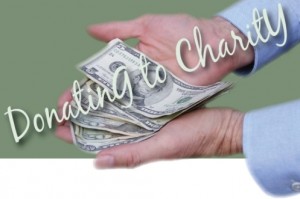Lottery operators and charity

Not all the money collected by lottery operators from selling tickets goes to fuel the prize pool, with a significant percentage being donated to charity
Lottery operators and nonprofit organizations
When someone wins a lottery jackpot, everyone is cheering for the lucky player and the attention is aimed exclusively at the one who scooped the main prize. The truth is that there are many collateral winners each time a lottery draw is organized, and these are not limited to lottery operators and those who win low tier prizes. The vendor who sells the winning lottery ticket also receives a small percentage of the jackpot, but the main beneficiaries are charities and nonprofit organizations. The amounts vary from one lottery to another, but a percentage of money collected from selling tickets is donated to good causes.
Prices go up, donations go down
It goes without saying that lottery operators are trying to maximize their profits, but they need to keep a healthy ratio between their gains and the player’s expectations. The National Lottery for instance is operated by Camelot, and since 1994 when the first draw was held, the price of a ticket has stood firm at £1. For each ticket sold, 28 pence were donated to charity but things are about to change if we are to trust the local media and the numerous rumors that have flooded the Internet.
Camelot has announced that the price of a ticket will double and it looks like the amount donated to charity will be decreased to 27 pence. The slight dip shouldn’t have a detrimental effect, because if a similar number of tickets are sold charitable organizations should receive more money than they did. As lottery operators go, Camelot was one of the most generous ones, offering 8 pence more than the direct competition in the UK, the Health Lottery. The problem is that with the significant increase in ticket price there is a good chance for players to purchase less tickets or to play less often.
Unclaimed jackpots also goes to good causes
It is customary for lottery operators to impose a deadline for people who claim their prizes and if they don’t meet these requirements, the jackpot is returned to the lottery. What happens next is that the amount of money is donated to charity, and in very few cases the unclaimed prizes add to the next draw. The rule of thumb is to spend the money for helping underfunded projects, which means that those who missed out on the opportunity to claim their jackpots are unwillingly funding good causes.
Lottery operators in general and Camelot in particular are confident that the slight increase in ticket price will not prove to be an unprofitable move. The odds for lottery players to stop playing altogether are reduced, especially those who buy few tickets but play on a regular basis. Charitable foundations on the other hand have all the reasons to be optimistic about the amount of money that will be diverted to them.
Read about the Acts of charity made by lottery winners now.